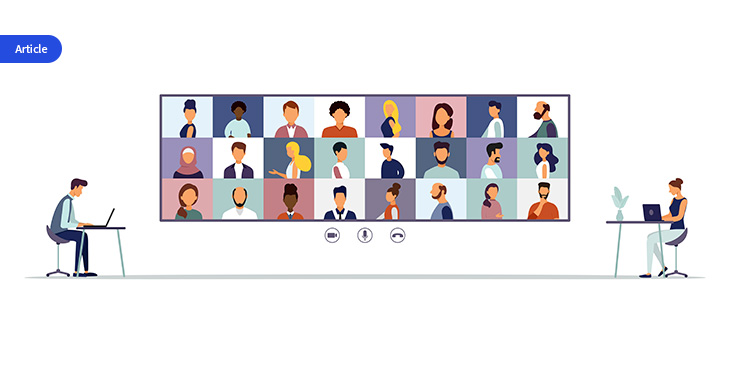No Going Back: How the Pandemic Changed MSPs for Good
Just like not all individuals are cut out for remote work, some industries aren’t suited for it either. But when COVID-19 threw everyone into an in-person lurch, the choice was clear: go digital or bust.
For event planning, hospitality, and travel businesses, a digital-only experience was a particularly difficult ask, though they certainly weren’t the only ones. Across the SMB community, the sudden, unexpected shift to work-from-home environments spiked demand for MSP (managed service provider) support.
The Evolving Enterprise offers this overview of the Traditional MSP model:
“Broadly speaking, an MSP is an outsourced third-party company that manages and assumes the responsibility of a defined set of day-to-day management services to its customers. In terms of IT, this mainly includes networks, applications, infrastructure, and security, via ongoing and regular support and active administration on customers’ premises, external data centers (hosting), or in the public cloud.”
Now that you know what it is, here’s a peek at how the MSP industry has evolved over the pandemic – and what that means for your business.
MSPs have long had remote monitoring and management as a core offering, making them the natural choice for securing data in the WFH environment.
MSPs have long had remote monitoring and management as a core offering, making them the natural choice for securing data in the WFH environment.
WFH the MSP Way
Managed service providers have been making inroads for decades. But it was the rise of remote work that really made MSPs mainstream.
From essentially one day to the next we collectively went from central office to home office, decentralizing our networks in the process. MSPs have long had remote monitoring and management as a core offering, making them the natural choice for securing data in the WFH environment. Many SMBs also turned to them to supply devices and software-oriented solutions.
According to ComTIA, “many MSPs are broadening their customer reach and profit margin potential by offering more premium services…things like business applications-as-a-service solutions, data analytics, cloud-based services, more advanced types of cybersecurity, and consulting-level work around compliance and privacy…”
A Proactive Approach to IT
With the increase of cyber threats, reactive IT management practices have quickly fallen out of fashion.
MSPs have historically focused on more routine IT tasks, like flagging unsupported devices or unknown users, resolving data issues, etc. But keeping a remote workforce protected required a new level of dedication.
Proactive MSPs are now dominating the landscape as a result. Whereas cybersecurity used to represent a smaller portion of the typical MSP portfolio, more than 50% now provide it in addition to traditional offerings like networking or help desk services.
The Ransomware Response
All types of cybercrime are on the rise. But one threat in particular has kept MSPs on their toes: Ransomware.
Given how lucrative this attack type is for cybercriminals, it’s no wonder Malware increased by an astounding 358% in a single year.
While ransomware attempts are likely to continue, some governments are taking steps to discourage organizations from facilitating transactions in hopes of deterring future attacks. Industry experts anticipate there may soon be a wave of sanctions against those who accept or disperse ransomware payments.
New Cybersecurity Standards and MSP Regulations
“The very first MSP regulation law was enacted in 2020. Passed by a bipartisan state legislature in Louisiana, the law requires MSPs who service state agencies to register with the Secretary of State,” explains Tech Target.
Regulating bodies in other parts of the world are likely to follow suit as more cybersecurity codes of conduct start to take shape.
The future looks promising for MSPs. Though the last two years have been uncharacteristically busy, their time in the spotlight is far from over. So long as remote and hybrid work models continue to abound, managed services providers are liable to be driving digital business forward, even after the COVID-19 curtain call.
Content created and provided by ONEAFFINITI.












